#lee chang-dong
Explore tagged Tumblr posts
Text

Burning (2018), dir. Lee Chang-dong
1K notes
·
View notes
Text




















Ascenseur pour l'Echafaud
Burning (2016) dir. Lee Chang Dong
#One of my fave scenes ever#Burning#lee chang dong#Lee Chang-dong#yoo ah in#steven yeun#jeon jong seo#cinematic still#film#still#stills#movies#films#movie stills#film stills#cinematography#horror#horror movies#movie frames#movie shots#film shots#korean#south korea#korean cinema#south korean cinema#korean movie
103 notes
·
View notes
Text
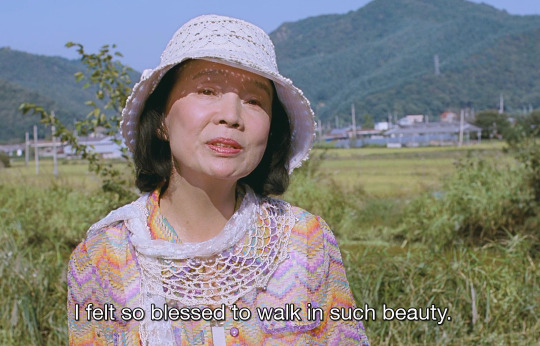
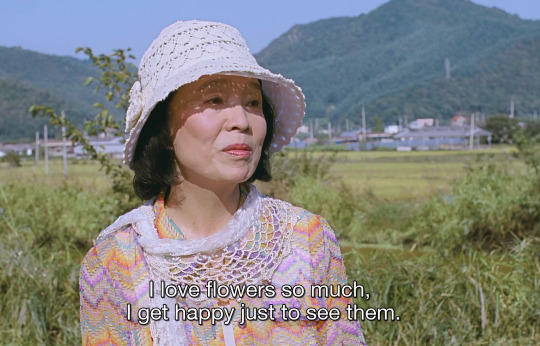

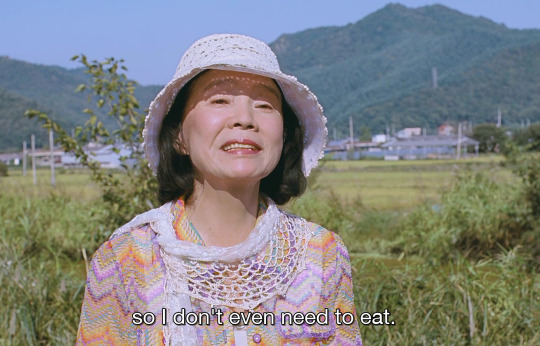
시 POETRY — 2010 dir. Lee Chang-dong
377 notes
·
View notes
Text




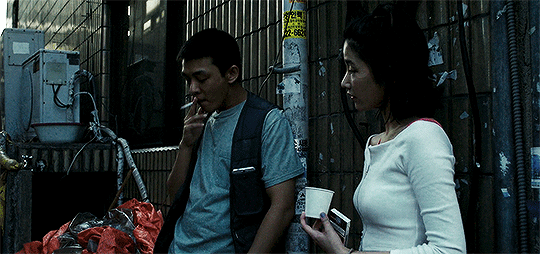


버닝 / Burning (2018) dir. 이창동 / Lee Chang-dong
#Burning 2018#버닝#Lee Chang-dong#이창동#Yooh Ah-in#유아인#Steven Yeun#Jeon Jong-seo#전종서#burningedit#movieedit#filmedit#kmovie#korean cinema#dailyflicks#dailyworldcinema#my gifset#Lobster’s adventures#my art#this is so not what im supposed to be taking away from this movie but it's what i feel nonetheless: i wanna go visit korea again :(#but i am being RESPONSIBLE and saving money for school instead :(#g
37 notes
·
View notes
Text
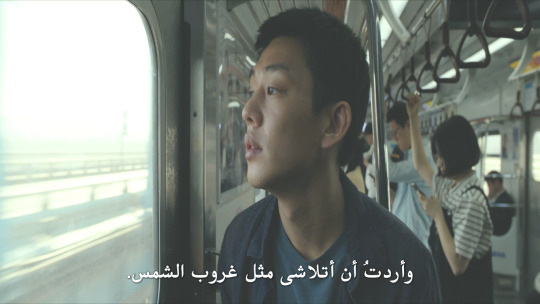
"I wanted to vanish just like that sunset. but I was afraid of dying. If only I could vanish like I never existed."
227 notes
·
View notes
Text

Poetry, Lee Chang-Dong, 2010
34 notes
·
View notes
Text



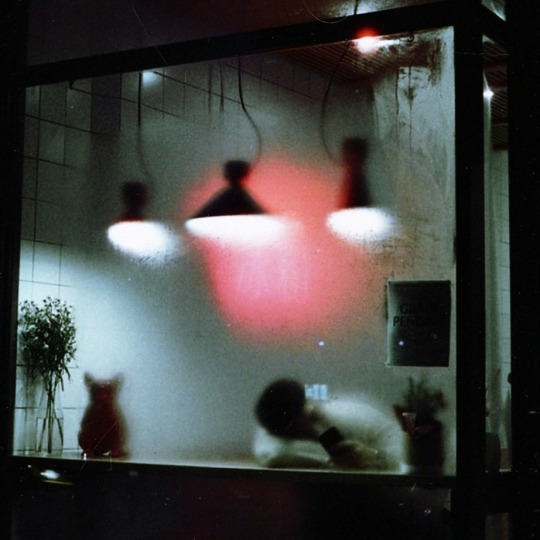





Burning (2018) dir. Lee Chang-dong
Requested by @dogscomplex
#burning#2018#burning 2018#Lee Chang-dong#requested#sorry for wainting#mb#mine#mooodboard#thriller#drama#korean cinema#Steven Yeun#Jeon Jong-seo#Ah-in Yoo#movies#movies edit#aesthetic
51 notes
·
View notes
Text






Green Fish (Lee Chang-dong, 1997)
Cast: Han Suk-kyu, Shim Hye-jin, Moon Sung-keun, Mung Gye-nam, Kim Yong-nam, Han Seon-kyu, Jung Jin-young, Oh Ji-hye, Son Young-soon, Song Kan-ho, Lee Moon-sik. Screenplay: Lee Chang-dong. Cinematography: Yong Kil-you. Film editing: Hyun Kim. Music: Lee Dong-jun.
A young man (Han Suk-kyu) finishes his military service and returns home, but on the way there he gets involved with a beautiful woman (Shim Hye-jin) with underworld ties. Fine performances and razor-keen editing animate this fascinating noir drama leavened with dark humor and superbly atmospheric cinematography and music.
3 notes
·
View notes
Text

Happy 70th, Lee Chang-dong.
8 notes
·
View notes
Text
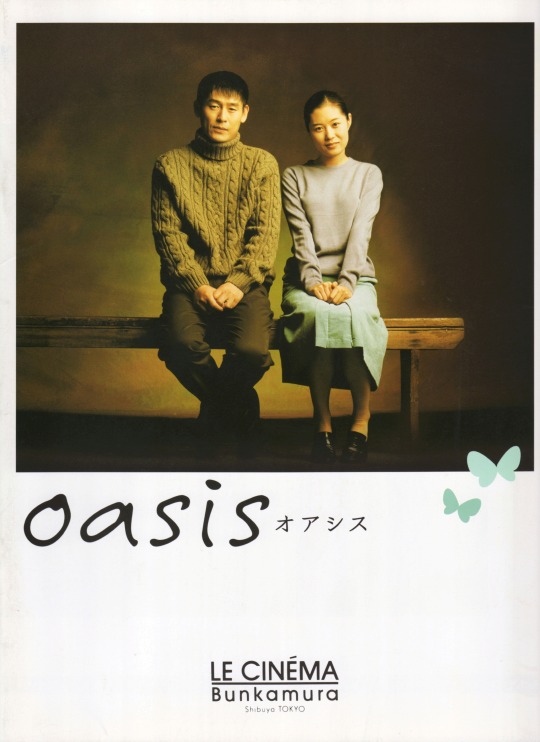
オアシス oasis Bunkamura LE CINEMA. Bunkamura Shibuya TOKYO 監督:イ・チャンドン/出演:ソル・ギョング、ムン・ソリ ほか
#oasis#オアシス#le cinema#bunkamura#Lee Chang-dong#lee chang dong#イ・チャンドン#Sol Kyung-gu#ソル・ギョング#Moon So-ri#ムン・ソリ#anamon#古本屋あなもん#あなもん#映画パンフレット#movie pamphlet
15 notes
·
View notes
Text

Traditions in transition: cinematic perspectives on the modernization of post-war societies (4/4)
Before concluding this four-part series, I want to examine how Lee Chang-dong’s "Peppermint Candy" (1999) portrays post-war South Korea’s transition from a military dictatorship to democracy. The film not only encapsulates the essence of societal transformation but also serves as a poignant reminder of history's lasting impact on individual lives.
As usual, you can find my previous articles HERE.
Part 3. Peppermint Candy (박하사탕, Lee Chang-dong, 1999)
youtube
Peppermint Candy's Trailer
Directed by Lee Chang-dong, an influential auteur of Korea’s New Wave of cinema, Peppermint Candy (1999) reflects on South Korea’s turbulent journey to democratization and modernity in the decades after the Korean War. Through its non-linear structure and powerful performances, Lee Chang-dong's film delves deep into themes of lost innocence, the impact of political and social change, and the haunting effects of guilt and regret. By revealing Yong-ho’s life in reverse, Lee Chang-dong juxtaposes personal memories with historical events, emphasizing the interplay between individual trauma and collective memory. In this way, he also effectively highlights how past experiences shape present identities.
The film begins with the suicide of the protagonist, Kim Yong-ho, who throws himself in front of an oncoming train. This haunting act serves as the catalyst for a reflective journey into the events that led to his untimely death. We see him in the 1990s as a broken middle-aged man, jobless due to the economic crisis and struggling with the consequences of his actions. His relationships deteriorate, including his failed marriage. Further back, he is depicted as a corrupt police officer and a disillusioned soldier witnessing the violent suppression of the “Gwangju Uprising”, also known as the “Gwangju Democratization Movement”. A tragic and pivotal incident in South Korean history that took place from May 18 to 27, 1980.
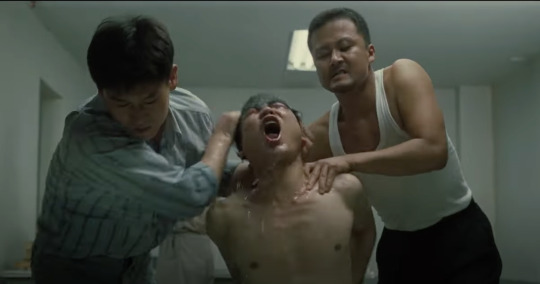

Peppermint Candy, Lee Chang-dong, 1999
Triggered by widespread discontent with the authoritarian regime of Chun Doo-Hwan, thousands of students and civilians in the city of Gwangju protested against martial law and demanded democratic reforms. The military’s brutal response led to the death of hundreds of protesters and left a deep scar on the national consciousness. To this day, the Gwangju uprising remains a significant historical event, reflecting the nation’s turbulent journey towards democratization and the enduring impact of state violence on collective memory.

Peppermint Candy, Lee Chang-dong, 1999
Peppermint Candy critiques political oppression and the abuse of power by depicting this military and police brutality. Its protagonist, Kim Yong-ho, is profoundly affected by the 1980 events. In a heart-wrenching scene, he accidently kills a high school girl during the chaos of the uprising, a moment that haunts him throughout the film. The title “Peppermint Candy” serves as a powerful symbol of innocence and nostalgia, contrasting sharply with Yong-ho’s despair. Initially, we see him as an idealistic young man with dreams and aspirations. However, as he becomes embroiled in the corrupt and violent system, his innocence is gradually stripped away, leaving him a hollow shell of his former self. Ultimately, Lee Chang-dong paints a harrowing portrait of a man haunted by his actions and struggling to reconcile the past with the present. Yong-ho’s identity crisis mirrors the broader societal identity crisis during South Korea’s transition.
Thank you for accompanying me on this journey. Your support has been truly invaluable.
Ruth Sarfati
#Lee Chang-dong#Peppermint candy#박하사탕#korean cinema#post war#modernity#democratization#trauma#ruth sarfati
2 notes
·
View notes
Text



Burning (2018), dir. Lee Chang-dong
29 notes
·
View notes
Text

11 May 2024
Film: PEPPERMINT CANDY (dir. Lee Chang-Dong, 1999, S. Korea)
Forum: Gene Siskel Film Center Format: DCP
Observations: The Gene Siskel Film Center featured five Lee Chang-Dong films this month; this one I was most eager to see and it did not disappoint. It's a backwards narrative starting with main character's violent death and tacking back over decades to see how he arrived there. Compared to POETRY, it feels like journeyman work. Still, everything about it pops: well-plotted, well-paced and convincingly cast. It was shown in the small theater, which was more than half-full.
2 notes
·
View notes
Text

Burning (2018, Lee Chang-dong, South Korea/Japan)
3 notes
·
View notes
Text

"How is it over there? How lonely is it? Is it still glowing red at sunset? Are the birds still singing on the way to the forest?"
Colour study of a scene from Poetry (2010).
What a movie.
#Poetry (2010)#colour study#color study#For my American pals#Original art#artist on tumblr#sad art#poetry art#Lee Chang-dong#Agnes' song#Yoon Jeong-hee
9 notes
·
View notes
Text
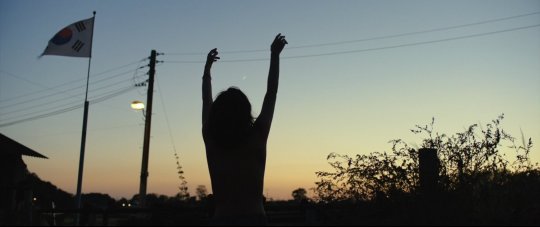
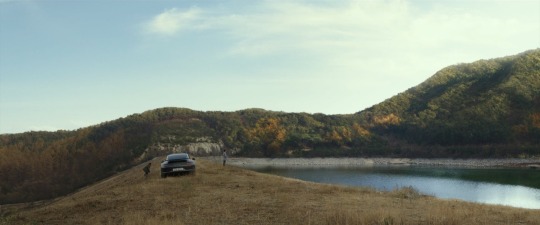
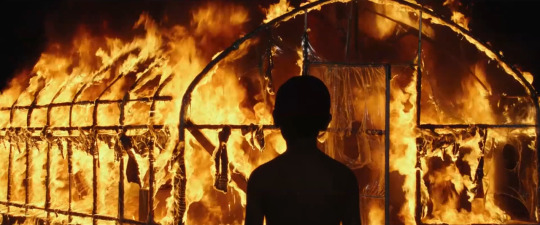

Burning (2018) — dir. Lee Chang-Dong
A rich and deeply thought film, mired in ambiguities, questions not quite answered in the half-light—but on another level it's very much about picking up your crush from the airport and she gets off the plane with Steven Yeun. Devastating. (spoilers under the cut, more movie thoughts on letterboxd)
Haemi is still a classic Murakami woman, and this has all the usual criticisms you could level at that. The dichotomy is in how men look at her, whether she is a disposable toy or jealously, clumsily fumbled at. But she has the great hunger, still gone unsatisfied. This is a film about young people, a shiftless, lost generation. Both Jong-su's parents are useless to him, selfish, uninterested in his life. These kids with no jobs, their elders ineffectual, stubborn, proud. Not really all that friendly. Go burning greenhouses. It's Jongsu who does the burning. A glimmer of sun off the Seoul tower, phallic, freighted with desire. Then, undressing as Haemi did for him and Ben, as the sun set, he burns Ben. Their final clinch more passionate and breathless even than Jongsu's other penetration, of Haemi. The Kalahari bushmen burning a fire from evening deep into the night, working the small hunger into the great hunger.
All these things that aren't quite there. The invisible cat an excuse to fuck, really, but leaving scat all the same. Phone calls that are merely silence. The tangerine, not willed into being but not-negated. Everything is there beneath the surface if it is not denied. It is in Panju, and also in Seoul. (Or is Ben's "simultaneous existence" the antithesis of this, all-being, total positive, both there and here, not between, not half or either but both? Making offerings to yourself, god and worshipper.) The well, remembered or created. Haemi herself, appearing as if a miracle and then vanishing just the same.
Burning burning burning, the film makes us wait so long to finally set something alight, but it is back there too, in the past, waiting behind us, beneath and around as the sun falls out of the sky into void.
#this is such a gorgeous film#and so thick with feeling#i watched this on almost no recommendation just seeing someone mention it on twitter#and im so glad i did#burning 2018#lee chang-dong#film#crit
15 notes
·
View notes